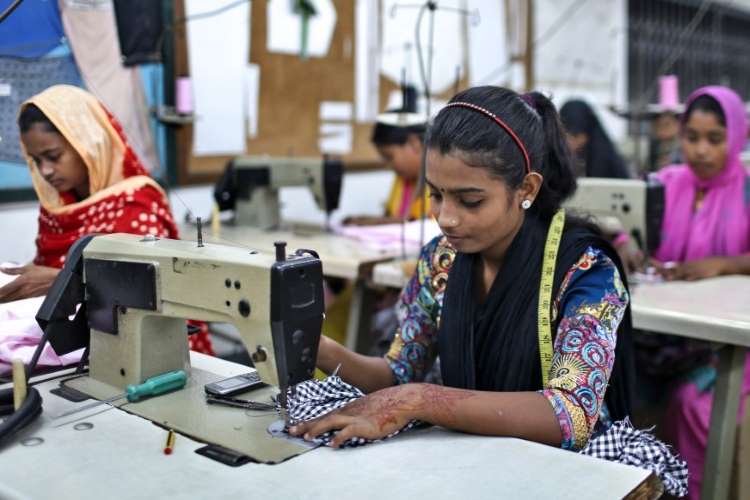
The declaration of the G20 Summit has reaffirmed India’s commitment to enhancing full, equal, effective, and meaningful participation of women in decision making and promoting access to digital technologies to prepare women for the future of work. This comes at a time when countries are focused on employment recovery, especially after the COVID-19 crisis, which had a severe impact on women’s employment in certain sectors where they are more heavily concentrated. While the road to recovery has been challenging, G20 offers valuable opportunities for mutual learning and experience sharing among G20 nations.
The global labour market has long witnessed low participation of women compared with men, reflecting significant inequality and labour market challenges. According to the 2023 World Employment and Social Outlook Report by the International Labour Organisation (ILO), the global labour force participation rate for women in 2022 was 47.4%, compared with 72.3% for men, resulting in a gender gap of 24.9 percentage points.
READ I Cash crunch: India’s green hydrogen mission faces resource shortage
G20 focus on women in labour market
Although women’s labour market participation has improved in several G20 countries, gender gap in participation rates persist across all G20 nations. India, Saudi Arabia, Turkey, and Mexico, among the G20 economies, report lower participation rates for women and larger gender gaps, necessitating effective policy strategies to address these disparities.
Over the years, G20 summits and collective agreements have attempted to address labour market inequalities through commonly agreed policy initiatives. Additionally, the advent of digital technology and technological transformation has brought about unprecedented changes in the world of work, giving rise to new forms of employment, digitisation, gig economies, skill challenges, and inequalities.
These changes disproportionately affect various segments of the workforce, including women. Alongside efforts to reduce the gender gap in labour market participation, G20 countries have recognised the need to address challenges arising from digitisation, automation, globalisation, and the importance of focusing on new skills, new forms of work, and innovative institutional frameworks to build an inclusive future of work.
The G20 leaders pledged their support for robust training efforts in their growth strategies and investments to achieve strong, sustainable, and balanced growth during the 2009 Pittsburgh Summit. In 2018, the G20 Argentina summit acknowledged the need to prioritise the future of work as a shared goal for achieving fair and sustainable development.
The ILO’s Global Commission on the Future of Work reiterated in 2019 the importance of seizing opportunities presented by transformative changes to deliver economic security, equal opportunity, and social justice. The human-centered agenda for the future of work emphasises broader dimensions of development and progress in living standards, including rights, and enabling environments that expand people’s opportunities and improve their well-being. The future of work, driven by technological transformation, necessitates a reassessment of employment promotion strategies, especially regarding opportunities for skilling and upskilling women workers to adapt to the evolving labour market.
Demographic changes in G20 countries, coupled with a burgeoning youth population in many of them, have profound implications for education, skills, and training. To promote decent work and advance gender equality, it is crucial to invest in the skills of young women and provide them with adequate access to such opportunities. G20 countries’ commitments to balanced and equitable growth also underscore the importance of providing better and higher skills to both men and women, reducing gender gaps in the labour market.
One key policy imperative for preparing the younger generation for the future of work is promoting women’s access to education, skills, and training. In several G20 countries, while women and girls achieve higher levels of education, they encounter invisible barriers that hinder their participation in long-term education programmes or the labour market. An OECD and ILO report in 2020 highlighted that in several advanced G20 countries, completion rates for upper secondary and tertiary degrees are higher for young women and men.
In emerging economies, efforts to reduce early school dropouts for both girls and boys are essential for facilitating their transition from school to work. Another significant policy challenge is addressing the issue of youth not in employment, education, or training (NEET), where several G20 countries report a high share of women in the NEET category. Gendered social norms and cultural practices often discourage women from participating in and sustaining long-term educational programs.
Given this context, the G20 deliberation offers clear directions for nations to collaborate in addressing women’s transitions to the future of work. Sectors such as digital jobs, green jobs, the care sector, gig and platform work, and the increasing demand for jobs in science and technology require employment protection, skilling, and access to social security. The promotion of STEM (Science, Technology, Engineering, and Mathematics) fields is critical in this changing world of work. G20 summits provide an important opportunity for member countries to further deliberate on innovative solutions for promoting women’s employment in the future of work.
(Dr Ellina Samantroy Jena is a fellow and co-ordinator at the Centre for Gender and Labour at VV Giri National Labour Institute, Noida.)
